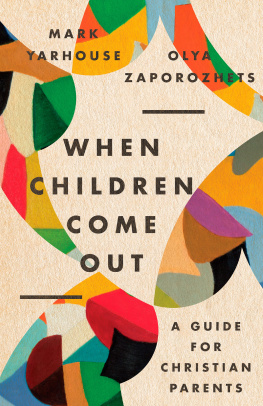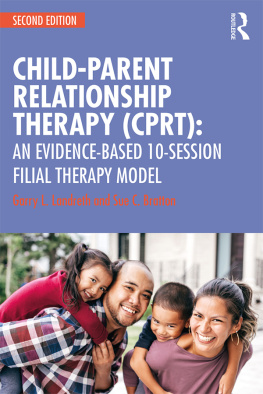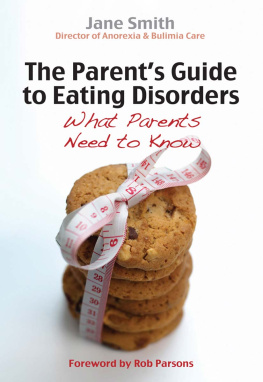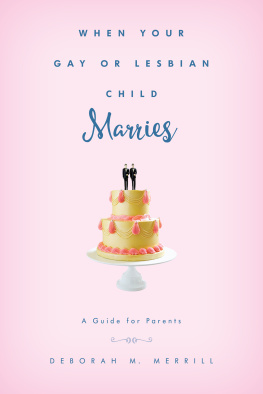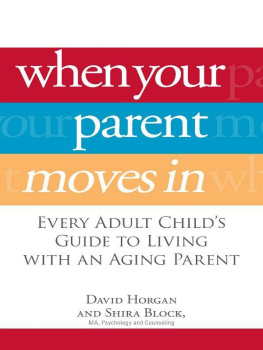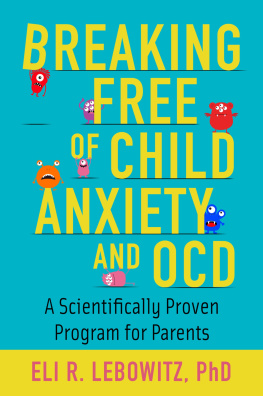Routledge Revivals
Having To
First published in 1985, Having To summarises the situation of more than a million parents in the UK alone that survive as single parents. This thought-provoking book is based on interviews with more than 200 women and men of all ages and backgrounds. The accounts of what life can be like in the world of one parent families are revealing, sometimes disturbing, and above all, moving. In this book, parents talk in depth about their experiences when confronted by violence, infidelity, lesbianism, child abuse and paranoia. They portray stories that will provoke many questions about the state of the nuclear family.
Having To
The World of One Parent Families
E. Cashmore
First published in 1985
by Unwin Paperbacks
This edition first published in 2013 by Routledge
2 Park Square, Milton Park, Abingdon, Oxon, OX14 4RN
Simultaneously published in the USA and Canada
by Routledge
711 Third Avenue, New York, NY 10017
Routledge is an imprint of the Taylor & Francis Group, an informa business
1985 E. Cashmore
All rights reserved. No part of this book may be reprinted or reproduced or utilised in any form or by any electronic, mechanical, or other means, now known or hereafter invented, including photocopying and recording, or in any information storage or retrieval system, without permission in writing from the publishers.
Publishers Note
The publisher has gone to great lengths to ensure the quality of this reprint but points out that some imperfections in the original copies may be apparent.
Disclaimer
The publisher has made every effort to trace copyright holders and welcomes correspondence from those they have been unable to contact.
A Library of Congress record exists under ISBN: 85011118
ISBN 13: 978-0-415-81270-2 (hbk)
ISBN 13: 978-0-203-06862-5 (ebk)
The World of One Parent Families
HAVING TO
EE Cashmore
First published by Unwin Paperbacks 1985
This book is copyright under the Berne Convention. No reproduction
without permission. All rights reserved.
UNWIN PAPERBACKS
40 Museum Street, London WC1A 1LU, UK
Unwin Paperbacks
Park Lane, Hemel Hempstead, Herts HP2 4TE, UK
George Allen & Unwin Australia Pty Ltd
8 Napier Street, North Sydney, NSW 2060, Australia
Unwin Paperbacks with the
Port Nicholson Press
PO Box 11-838 Wellington, New Zealand
Allen & Unwin Inc.,
Fifty Cross Street, Winchester, Mass. 01890, USA
Ellis Cashmore, 1985
Library of Congress Cataloging-in-Publication Data
Cashmore, Ernest.
Having tothe world of oneparent families.
Bibliography: p.
1. Single parentsGreat BritainCase studies.
2. Children of divorced parentsGreat BritainCase studies.
3. Separation (Psychology)Case studies.
I. Title.
HQ759.915.C37 1985 306.8560941 85-11118
ISBN 0-04-301098-9
ISBN 0-04-301099-7 (pbk.)
Set in 11 on 12 point Garamond by V & M Graphics Ltd, Aylesbury, Bucks and printed in Great Britain by Hazell Watson & Viney Ltd,
Member of the BPCC Group, Aylesbury, Bucks
Contents
Marie used to come round here a lot when I was living with my husband; and she used to bring her two kids because they used to play with mine. Theyre roughly the same age: the one is 3 and the other one is 4. When she found out I was splitting up and it was for good, she stopped totally from coming over to see me. And I saw her today over the park and I asked her why. And she said, well, she doesnt think it is right that I should bring up two children on my own without a husband; because kids need their father. Shes totally cut down her links with us.
[Mandy Barnwell, 23, mother of two]
Mine wasnt so much a marriage; it was more of a battle the kids better off without the bastard.
[Juliet Brown, 20, mother of one]
When my son was about 5 I remember they gave him a picture to draw at school. They told the kids to draw an animal family. And the teacher showed it me cause, where all the other kids had drawn three or four or five bears of something, Matthew drew two elephants; a big one and a small one. Just two.
[Colin Holly, 37, father of one]
Oh, the rain came down on a cold, new town,
as they carried you away.
From your fathers hand that always seemed like a fist,
reaching out to make you pay.
He came like a hero from the factory floor,
with the sun and moon his gift.
But, the only sons you ever saw
were the two he left you with.
Now the skirt hangs heavy around your hips
and you never knew you were young
Because you played a chance with a lifetimes romance
and the price was far too long.
Oh lord, where did the feeling go?
Oh lord, Ive never felt so low.
Chance by Big Country, 1983 Phonogram Ltd, London (Virgin Music Publishers Ltd)
Adamson, Brzezicki, Butler, Watson.1983 10 Music Ltd.
Imagine for a moment: the family institution does not exist. People can live in virtually unlimited ways: they can have sexual relations without any other attachments, they can join together in multiples of three or more, they can have children but allow them to be raised by other people or they could decide that just one of the natural parents will raise the child, or children, and the other will disappear. The institution of the family shuts off these options. At least, it deters people from exploring them except the last one. Societys institutional arrangements supply a set of scripts for all of us to use and only rarely are we permitted to try out new scripts for ourselves; even then, there is a good chance that well be labelled as abnormal or deviant.
Yet a new script is being written: more and more people are writing an alternative to the nuclear family of man, woman and children; they are developing the oneparent family. The new script is not an invention, nor is it the creation of any one set of individuals. Rather, it is the creation of human purposes and the product of changing social conditions. Broadly speaking, these changes began in the 1970s. The average family size in the UK and USA dropped from about 3.3 to 2.78 persons: a combination of improvement in family planning methods and a deterioration in economic conditions fuelled an awareness of the advantages of having smaller families. Divorce rates shot up, so that first marriages had only about a 60 per cent chance of survival: this reflected changes in divorce laws and a general recognition by people that they should strive for personal satisfaction in marriage and not be content to struggle vainly in empty relationships.
Underlying these was a sweep of new feminist consciousness: women began to realize that they could seize control of their lives and abandon their conventional roles as carers rather than breadwinners. Women stridently proclaimed that biology was not destiny. They rejected dependence on men and began to campaign for new rights and freedoms. In England, the 1970 Equal Pay Act and the 1975 Sex Discrimination Act were legal acknowledgements of changes in womens social roles and personal freedoms.


